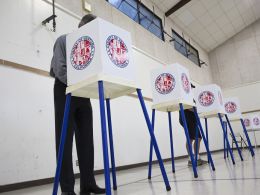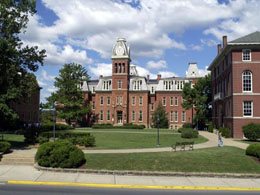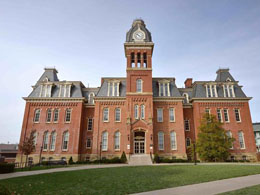
Moscow Government to Explore Blockchain Voting
Government officials in Moscow today revealed plans to investigate applications of blockchain technology. According to a report by Gazeta.ru, Deputy Head of the Department of Information Technologies (DIT) of Moscow Andrey Belozerov said that the agency is now exploring how to apply blockchain to various use cases, including voting fraud. One proposal, according to the news source, would find Moscow incorporating blockchain into Active Citizen, an in-progress e-government effort aimed at getting citizens more involved in local decision-making. Sberbank, one of Russia's largest banks, may....
Related News
Government officials in Moscow are willing to explore and implement the potential and uses of blockchain technology in various applications including the Active Citizen project. The city government initiative is a technology-laden program aimed to make citizens of Moscow more inclusive in affecting government decisions. The Department of Information Technology of Moscow is ready to implement blockchain technology within its “Active Citizen” project, according to the department’s deputy director. Andrei Belozerov revealed his eagerness to use blockchain technology during a meeting with the....
A blockchain voting project netted $10,000 in a recent contest organized by cybersecurity firm Kapersky Labs. Dubbed Votebook, the proposed system connects voting machines via a private blockchain run by, say, a local elections authority. The Votebook concept would enable constituents to check that their votes were actually counted, according to the team, which hails from New York University. As the team behind the project explained in their pitch, hosted on the website of The Economist: “Votebook not only satisfies the requirements of an acceptable voting system, it is also realistically....
National Settlement Depository, Russia’s central securities depository, has successfully tested an e-proxy voting system based on a distributed ledger (blockchain) technology. It has been eight years since the mysterious Satoshi Nakamoto introduced the definition of blockchain and implemented it in the original source code for his peer-to-peer digital cash system. While it is still unclear whether or not Bitcoin or other cryptocurrencies have any real long-term value, many argue that the acceptance and wider adoption of blockchain technology are fast approaching. Various industries see the....
Students at West Virginia University (WVU) have proposed an innovative blockchain-based voting system for the university's upcoming Student Government Association (SGA) elections. The Student Government Association in WVU is currently debating the notion of using blockchain-based voting at polling stations as opposed to legacy voting machines, according to The Daily Anthenaeum, the student-run university newspaper. The newly proposed voting system is based on an iPad application that would allow students to vote for the next President and Vice President of the Student body. Students....
West Virginia University's (WVU) Student Government Association (SGA) is debating whether to use a blockchain-based voting platform for its upcoming elections, according to the college's student-run newspaper, The Daily Athenauem. The initiative, proposed by WVU students Ankur Kumar and Ricky Kirkendall, would allow students to use iPad apps to vote for Student Body President and Vice President, as opposed to traditional voting machines. If implemented, the students argue, the plan would save the SGA anywhere from $5,000-$7,000, the difference between renting voting machines or purchasing....





